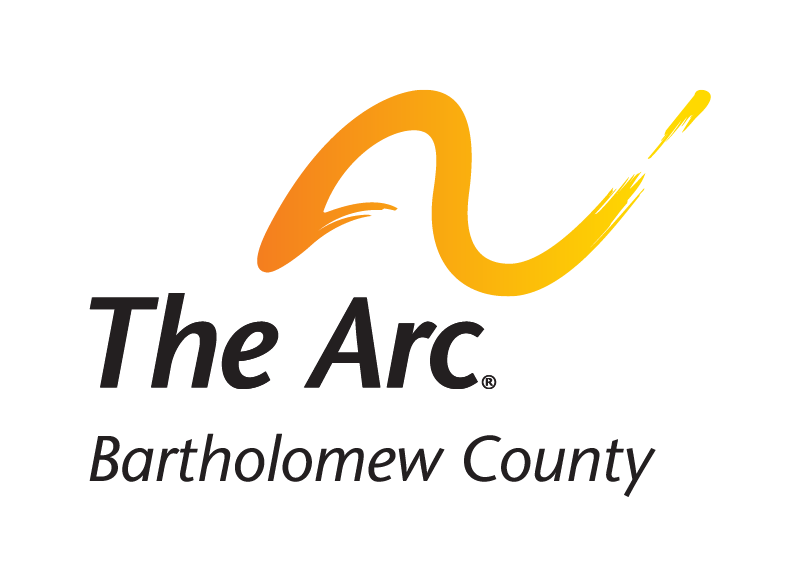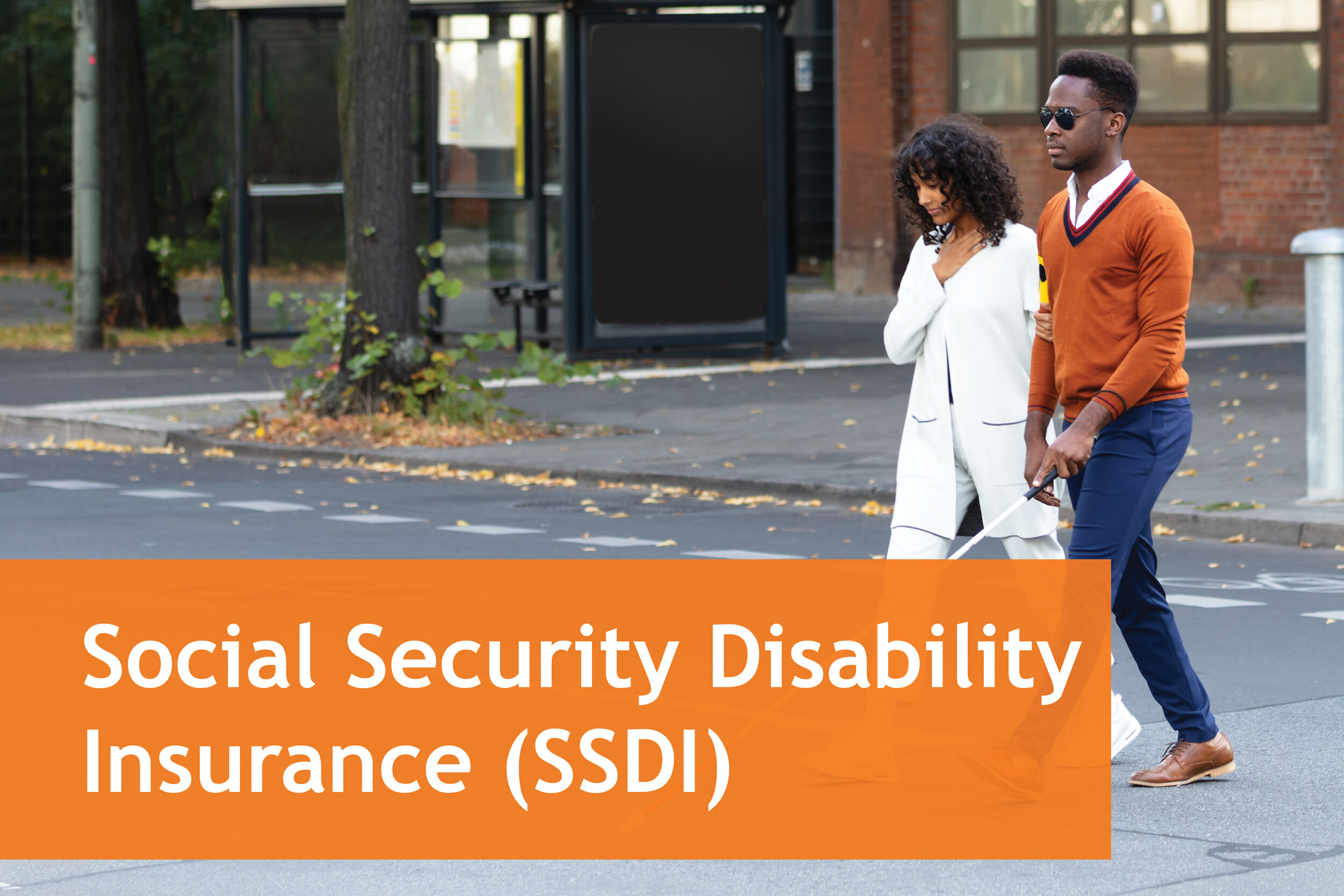Social Security Disability Insurance (SSDI)
Social Security disability insurance (SSDI) is a Social Security Administration (SSA) benefit program that provides monthly income for people who've worked for a period of time and become disabled. The program can also provide benefits for the recipient’s children and grandchildren, if the recipient is currently receiving benefits from the SSA, including Social Security retirement benefits.
Quick Links
Program Description
Social Security disability insurance (SSDI) is a Social Security Administration (SSA) benefit program that provides income to individuals who become disabled during their working careers. Individuals must make a certain amount and pay enough in social security taxes to be eligible to receive Social Security disability insurance (SSDI) payments. In certain situations, a child whose parent becomes disabled may be able to receive benefits as well. If the child becomes disabled prior to their 22nd birthday, then the payments can continue past the child’s 18th birthday. These disability benefits can provide ongoing income to individuals who are unable to work.
Disability Determination
The Social Security Administration (SSA) has a list of medical conditions by bodily system that it considers severe enough to prevent a person from meeting Substantial Gainful Activity (SGA) standards. When making a disability determination, the agency considers five questions (as found on the Social Security Administration (SSA) - Disability Benefits | How You Qualify page:
Disability Questions
1. Are you working?
Social Security disability insurance (SSDI) doesn’t provide additional income if you’re earning over a certain amount each month. The amounts are mentioned in the Substantial Gainful Activity (SGA) section in this article. There are special rules related to income counting, so you may be eligible even if your gross income is above the income standards mentioned.
2. Is your condition "severe"?
Your disability must affect your ability to do work-related activities and it must last for at least 12 months. Temporary situations, for example, would not be considered severe enough that the Social Security Administration (SSA) would consider you disabled.
3. Is your condition found in the list of disabling conditions?
The Social Security Administration (SSA) has a list of medical conditions that defines what it considers a disability. Your disability doesn’t necessarily have to be on the list for you to be considered disabled, the agency will simply need to confirm that it meets the requirements of the program.
Certain conditions qualify during diagnosis, like Lou Gehrig’s disease (amyotrophic lateral sclerosis or ALS). These fall under a special provision called Compassionate Allowances and can fast-track the receipt of benefits.
4. Can you do the work you did previously?
If your disability still allows you to perform work you did previously, then you may not be considered disabled according to the Social Security disability insurance (SSDI) program.
5. Can you do any other type of work?
If you cannot do the same work you did in the past, the Social Security Administration (SSA) will determine if you can perform other types of work based on your skills and previous work experience. If the agency determines you cannot perform other types of work, then you’ll be considered disabled and can become eligible for Social Security disability insurance (SSDI).
Childhood Disability Benefits (CDB): Children under age 18 and Disabled Adult Children
Children who become disabled prior to reaching age 22 can be eligible to receive payments based on their parent’s earning record. If the child continues to be disabled, then the child can continue receiving Social Security disability insurance (SSDI) payments after their 18th birthday. The child does not need work credits to receive these benefits.
The Social Security Handbook (section 323) describes the situations when a child can receive insurance benefits based on his or her parent’s earning record:
323. Who is entitled to child's insurance benefits?
A child is entitled to child's insurance benefits on the Social Security record of a parent if the following conditions are met:
A. An application for child's insurance benefits is filed;
B. The child is (or was) dependent upon the parent (see [sections] 333-337);
C. The child is not married;
D. The child meets any of the following conditions:
1. Is under age 18;
2. Is age 18-19 and a full-time elementary or secondary school student; or
3. Is age 18 or older and under a disability (which must have begun before age 22) (see [section] 517); and
E. The parent meets any of the following conditions:
1. Is entitled to disability insurance benefits;
2. Is entitled to retirement insurance benefits;
3. Died and was either fully or currently insured at the time of death.
The Earnings Test
Eligibility for the program generally requires gaining work credits based on earnings each year. The Social Security Administration (SSA) created a document (How You Earn Credits 2021 (pdf)) describing the process in detail. During the calendar year 2021, you’ll earn one credit for every $1,470 you earn. The maximum number of credits you can earn in a year is four, so earning $5,880 gives you the maximum number of credits for the year. You can check the number of credits you’ve earned by creating a my Social Security account on the Social Security Administration (SSA) website.
The age when a person becomes disabled determines the credits needed to receive payments from the program (quoted from How You Earn Credits 2021 (pdf)):
• If you become disabled before age 24, you generally need 1½ years of work (six credits) in the three years before you became disabled.
• If you are 24 through 30, you generally need credits for half of the time between age 21 and the time you became disabled.
• If you are disabled at age 31 or older [up to age 42], you generally need at least 20 credits in the 10 years immediately before you became disabled.
For every additional year of age, you’ll need approximately one additional work credit, until you reach age 62. At age 62 and older, you’ll need 40 credits to qualify for social security benefits.
Substantial Gainful Activity (SGA)
To receive and continue to receive disability benefits a person must be unable to meet a standard of work called Substantial Gainful Activity (SGA). Substantial Gainful Activity (SGA) refers to an amount of earnings each month. If a person is blind, then the income level is higher than the standard for non-blind individuals. The 2021 Substantial Gainful Activity (SGA) monthly standard is as follows:
$2,190 for blind individuals
$1,310 for non-blind individuals
The standards change year-to-year to account for inflation and changes in the cost of living, based on the National Average Wage Index. You may also hear of something called a Cost-of-Living Adjustment or COLA. The Cost-of-Living Adjustment (COLA) determines the change in benefit amounts for social security program benefits like Supplemental Security Income (SSI) or Social Security disability insurance (SSDI).
Working While Receiving Benefits
If you become disabled, you might be able to work fewer hours or in different ways. The Social Security Administration (SSA) believes that employment is preferred, so it has created programs to make it easier to find a working situation that doesn’t put you at risk of losing your benefits immediately. These are called work incentives and help secure new types of employment or ways of working for people who are disabled. The following sections are paraphrased from the Working While Disabled: How We Can Help (pdf) pamphlet published by the Social Security Administration (SSA).
Trial Work Period
Since getting back into the workforce after becoming disabled can be challenging, the Social Security Administration (SSA) developed the idea of a Trial Work Period. The Trial Work Period is a period of nine months where you continue to receive your full social security benefit no matter how much income you earn. However, you’re required to report your earnings to the Social Security Administration (SSA) for tracking and eligibility purposes.
For 2021, if you work in your own business more than 80 hours or earn more than $940 during a month, then that month counts as one of the nine months during your Trial Work Period. The Trial Work Period ends when you reach nine months in the past 60 months where you work or earn more than the previously specified amounts.
Extended Period of Eligibility
If you’ve found a way to work and earn money and you reach your nine months of the Trial Work Period, then you’ll move into the Extended Period of Eligibility. The Extended Period of Eligibility lasts for 36 months. During this three-year period, you’ll be eligible to receive your full social security benefit for any month where your income doesn’t exceed the Substantial Gainful Activity (SGA) earning standard. The 2021 earning standard is $1,310 for non-blind individuals or $2,190 for individuals who are blind. During this period, you don’t need to reapply to continue receiving benefit payments for months when your earnings don’t exceed the standard.
Impairment-Related Work Expenses (IRWEs)
To continue working after becoming disabled, you might have certain expenses that you didn’t have before becoming disabled. For example, you may need to pay for transportation or make updates to your vehicle. These expenses, if required for you to continue working are considered Impairment-Related Work Expenses (IRWEs). These expenses reduce your countable income, so you can continue to work and earn money without necessarily losing all of your social security benefits. You can learn more about these deductible expenses in the Ticket to Work: Impairment-Related Work Expenses (IRWEs) FAQ (pdf) document created by the Social Security Administration (SSA).
Applying for the Program
The Social Security Administration (SSA) created a web page, Social Security - Disability Benefits, that gives details about the process and defines what documents you’ll need to submit to the agency. Applying for Social Security Disability Insurance (SSDI) follows a similar application process as Supplemental Security Income (SSI). If you are eligible for Social Security disability insurance (SSDI), your benefits cannot start until you apply for the program. Thankfully the Social Security Administration (SSA) allows you to start the application process online.
The Social Security Administration (SSA) prefers that applicants apply online, but you can also start the application process via telephone:
Call 1-800-772-1213 (TTY 1-800-325-0778) from 8:00 a.m. to 7:00 p.m., Monday through Friday, to apply by phone.
You can also apply for benefits by contacting the local Social Security Administration (SSA) office. The contact information is found below, in the section that follows.
You may also wish to create an online my Social Security Account. The my Social Security account helps you keep track of the benefits you may be eligible to receive both related to disability and otherwise.
If you’d like to see if you may be eligible for other benefits you can use the Social Security Administration’s Benefit Eligibility Screening Tool (BEST). BEST includes a short questionnaire that helps you understand what benefits you might be eligible to receive. While the tool can give you an idea about your eligibility for benefits, you still need to complete the application process in order to begin receiving benefits.
Local Office Contact Information
For individuals who live in or near Bartholomew County, the nearest Social Security Administration (SSA) office is located at:
Address: 2535 Arnold Street, Columbus, IN 47203
Phone: 866-755-0990
TTY: 1-800-325-0778
Fax: 1-833-950-2162
If you don’t live close to the office in Columbus, then you can use the Social Security Office Locator to find the closest office to you. You can also call the national toll-free number from 7am to 7pm on weekdays at: 1-800-772-1213 or 1-800-325-0778 (TDD).
Additional Resources
Social Security Administration (SSA)
Handbook & Program Operations Manual System (POMS):
Forms
Resources & Publications:
Details about applying for Disability Benefits:
What You Need to Know When You Get Social Security Disability Benefits (pdf)
Ticket to Work: Impairment-Related Work Expenses (IRWEs) FAQ (pdf)

